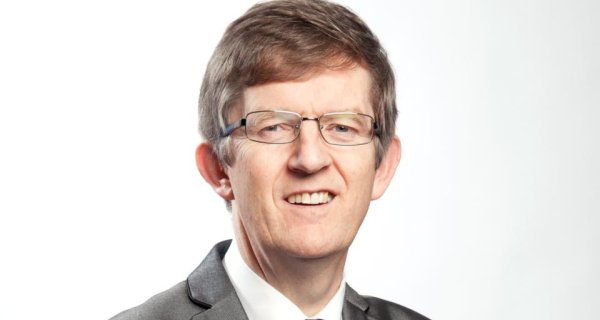Innovative and efficient inputs to maximum farm output is the key. This is according to Grassland Agro’s Liam Woulfe, speaking on the first anniversary of Grassland Agro’s merger with Groupe Rouliier’s Irish business.
“Our mission is to supply Irish farmers through the merchant co-op trade, to provide a range of farm inputs to enable them to increase output and profit on a sustainable basis,” he said.
Speaking to AgriLand, the managing director outlined priorities and challenges for farm-gate profit growth.
“The potential of our land is enormous, but our soil is not getting special treatment,” Woulfe said matter of factly.
He explained: “If you look at the soil indices of P and K. In 2000 40 per cent of soil in Ireland was ranked inadequate. In 2010 this was 60 per cent. There needs to be a greater focus on soil as the dynamics at the moment are inefficient.
“The potential of land and soil improvement is enormous. If you look at arable farmers, for the past 10 years they have always had a focus on the engine, the efficiency of soil. When it comes to cattle farmers, farmers focus on grass, cattle, housing, grazing and soil has not got that special treatment. For arable farmers, soil is an enormous critical factor and many farmers need to manage their soil better.”
In terms of crops, Woulfe said farmers must balance increasing yield without damaging the retail relationship. “Also there is huge research and development out there, now we are not talking GM, but tools that can increase yields more efficiently. There is colossal amount of opportunities for farmers.”
Technology advances to combat weather volatility, he said, is also fundamental.
“So much fertilisers and sprays are just thrown on crops and land, then the weather comes and what’s left? Is that efficient? Behind the scenes, we at Grassland Agro are bringing together new products to the Irish market based on solid research.
“In my 11 years at Grassland Fertiliser I did not come across any supplier in Ireland who had a new product based on new innovative research, so there are great opportunities for farmers. We are at the very early stages but there will be slow-release products to increase functionality.”
Woulfe gave another example. “If you put out CAN or Urea, then the weather is bad and there’s too much water. It terms of efficiency, simply put, it’s a bit ‘ify’. Will you get the result you hoped for? Not a chance.”
The Grassland Agro managing director also referred to Ireland’s great strides in animal breeding.
“There has been huge progress but high performing animals need good feeding. There needs to be new thinking in terms of minerals. Better attention. For example if you are milking 80-100 cows a lot, what comes out must be replaced. The core component of feed is its ability to optimise performance.”
Key to farm output and profit is labour and this will become more important in the future post-quota, he said.
“We can’t have people having to farm all alone 100 cows, take into account calving, milking for example. There is a great need to labour and partnerships. The ideal scenario if that people pool resources locally to perform better. Pooling labour resources, rather than everybody doing a little and everybody struggling.”
Woulfe also highlighted the advances of farming technology. “GPS for spraying and fertilisers, gadgets showing when a cow needs a feed, how much feed, when in heat, robotic milking and feeding. Technology has moved massively. This didn’t exist 20 years ago and how this equipment is going to be managed at farm level is important.”
Technology and communication between co-ops and suppliers has also fundamentally changed, he said.
“In terms of protein and butterfat information, the co-op can tell the farmer daily what is causing improvement in this, be it grass or a certain type of feed. This is hugely beneficial and it drives good farm management levels. Before quotas in 1984, there were no mobile phones, no computers, no internet. It’s a different world today.”
Woulfe also cautioned on the level of debt at farm level. “Finance is key to everyone’s game. A person has to be well financed. Anyone who is overdependent on borrowing, well they will struggle,” he warned.
“At the moment, farmers like everyone else, would like to have less borrowings but we are lucky with current interest rates. my advice is to plan for interest rates at six to seven per cent. If you plan at the current rates, it could be a very lonely place paying back the bank if the rates change in the coming years.”
On a more optimistic note, Woulfe said the potential for farmers to grow their profits post quota, taking into account advances in soil, crops, animals, labour, technology and equipment, is huge.
“If you drive on the road from Limerick to Dublin, there is scarcely 50 per cent of farms who are working efficiently and the great thing post quota is that the opportunity is there for farmers to maximums their output and profit.
“The world is our oyster. In Ireland we produce one to two per cent of the world’s milk. If we increase that by 50 per cent we are not going to flood the world. We might as well prosper rather than depend on another country, on someone else.”
